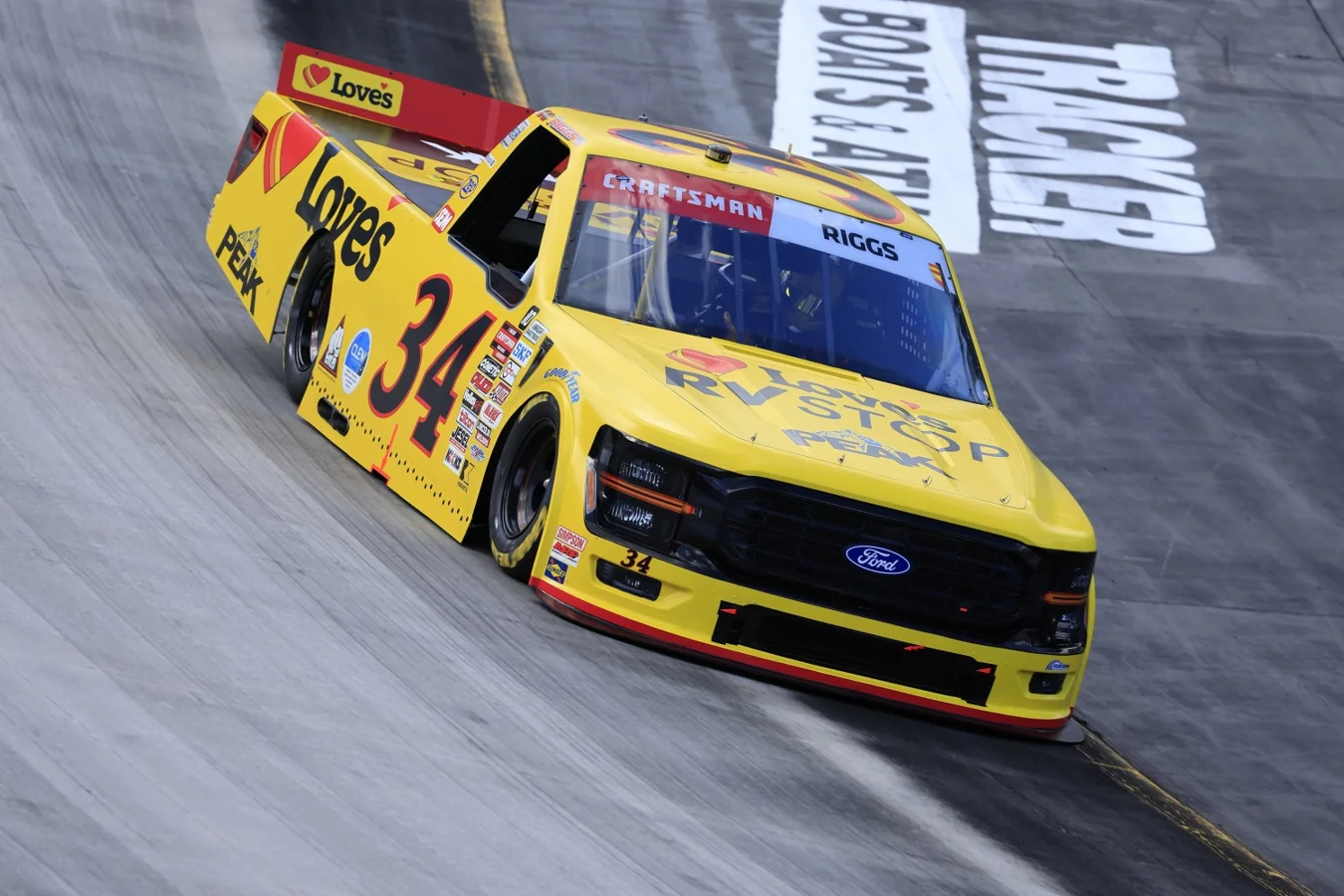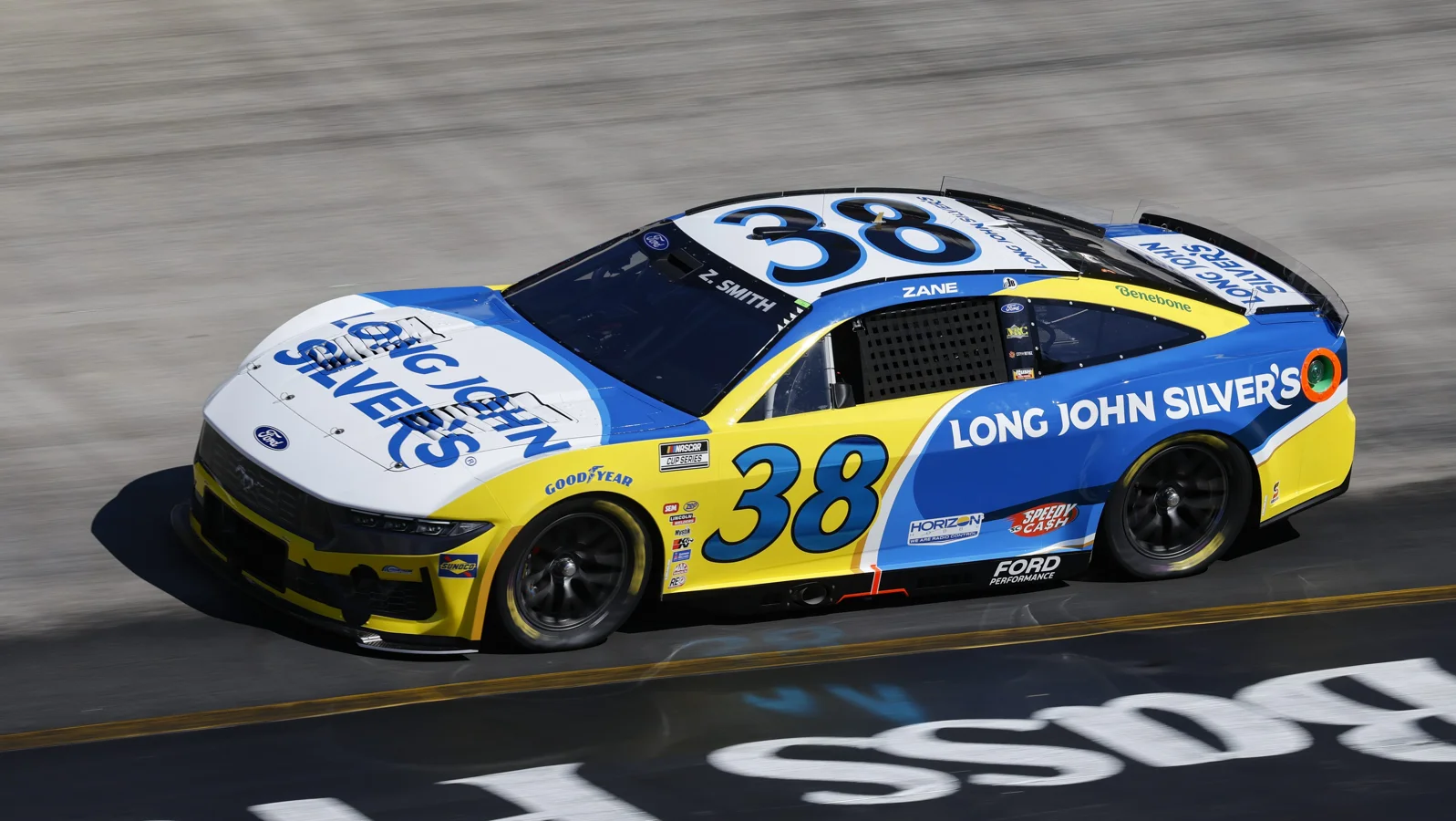Front Row Motorsports and 23XI Racing have requested a summary judgment in their ongoing legal conflict with NASCAR, aiming to dismiss NASCAR’s counterclaims as part of the broader Front Row Motorsports NASCAR lawsuit summary judgment motion. The legal maneuver, filed on Friday, is intended to prevent the counterclaims from distracting from the central antitrust case, which heads to trial December 1, 2025.
Efforts to Dismiss NASCAR’s Counterclaims
In a critical move within their legal battle, 23XI Racing and Front Row Motorsports submitted a motion for summary judgment to dispute NASCAR’s counterclaims, arguing these possess neither a sound legal nor factual basis. According to their filing, their aim is to ensure the trial remains focused on the antitrust dispute between the teams and NASCAR rather than veering into ancillary arguments.
“NASCAR’s counterclaims lack legal and factual merit.”
—Front Row Motorsports and 23XI Racing, motion for summary judgment
NASCAR’s counterclaims, filed on March 5, were directed not only at the teams but also Curtis Polk, a co-owner at 23XI Racing. The teams’ recent summary judgment request is strictly related to these counterclaims and does not seek dismissal of the main antitrust lawsuit. Should the court side with the teams’ motion, the December trial may bypass arguments related to the counterclaims, keeping the proceedings streamlined and focused.

NASCAR’s Allegations Against Racing Teams and Polk
NASCAR alleges that 23XI Racing, Front Row Motorsports, and Curtis Polk have launched an aggressive collective effort to pressure the sanctioning body into revising financial and contractual terms for teams in advance of the 2025 Charter Agreement. According to NASCAR’s filings, the group coordinated strategies to secure more favorable terms during Charter negotiations.
“embarked on a strategy to threaten, coerce, and extort NASCAR into meeting their demands for better contract and financial terms”
—NASCAR, court documents
NASCAR maintains that the conspiracy included attempts to limit competition among teams, boost payments, and negotiate as a unified bloc to sway the outcome of the 2025 Charter Agreement talks. NASCAR characterized these alleged tactics as both coercive and anti-competitive.
“The conspiracy and agreement consists of an agreement to engage in concerted action among Counterclaim Defendants and others to limit competition, increase payments, and otherwise demand their preferred terms for Charter teams by agreeing on the terms they would offer and agree to when collectively negotiating the 2025 Charter Agreements with NASCAR.”
—NASCAR, court documents
Arguments Presented by 23XI, Front Row, and Polk
The racing teams countered NASCAR’s claims in their summary judgment filing, stating the facts provided by discovery demonstrate no genuine issue of coordinated anti-competitive activity. They referenced evidence, including admissions by NASCAR, showing no unified agreement prevented individual negotiations between NASCAR and its teams.
“another example of NASCAR’s litigation gamesmanship, designed to retaliate against Plaintiffs. Summary judgment should be granted now, so that the parties can plan for the December 1, 2025, trial with the knowledge that NASCAR’s baseless counterclaim is not going to distract from the purpose of those proceedings.”
—Front Row Motorsports and 23XI Racing, motion for summary judgment
From the teams’ point of view, NASCAR’s allegations are aimed at creating a retaliatory distraction rather than addressing substantive antitrust concerns regarding the Charter Agreement for 2025. They reinforced their stance by emphasizing how, historically, individual negotiations have played a significant part in the agreement process, and collective bargaining has not excluded NASCAR from negotiating separately with different teams.
“On the contrary, the undisputed evidence (including NASCAR admissions) shows there was never any agreement among the racing teams to prevent NASCAR from pursuing individual negotiations. In fact, NASCAR employed such individual negotiations to obtain the one-sided 2025 Charter Agreement terms that NASCAR itself has repeatedly declared to be good for both NASCAR and the entire sport of stock car racing.”
—Front Row Motorsports and 23XI Racing, court documents
Financial Context and Economic Pressures
The teams’ court submissions also addressed financial pressures that prompted demands for changes in revenue structures. They pointed to persisting economic difficulties among the chartered teams and a high rate of losses during the 2024 season, arguing these factors necessitated adjustments in revenue sharing under the next Charter Agreement.
“But NASCAR cannot show that this modest change in revenue sharing—made necessary by the continued dire economic condition of most chartered racing teams, 75% of whom lost money in 2024. …”
—Front Row Motorsports and 23XI Racing, court documents
Targeting of Curtis Polk by NASCAR’s Counterclaims
One point of contention raised by the teams and Polk is the assertion that NASCAR’s focus on Polk personally, in the realm of antitrust liability, is both misapplied and unsupported by their own evidence. Court documents clarify that the existing Charter system pre-dates Polk’s involvement in NASCAR by several years, undermining claims that he could have orchestrated any anti-competitive arrangement from its inception.
“NASCAR’s retaliatory effort to single him out for potential individual antitrust liability is disproven by NASCAR’s own allegations. NASCAR alleges that the harm to competition stems from the Charter system itself, which was created in 2016 — i.e., four years before Mr. Polk became involved in the sport. … Indeed, even after Mr. Polk joined the teams’ joint negotiation efforts in 2022, and eventually became one of four members of the (negotiating committee), the undisputed evidence shows that the other teams often did not agree with Mr. Polk’s views and took individual positions in the negotiations that preclude as a matter of law any inference of an agreement”
—Front Row Motorsports and 23XI Racing, court documents
NASCAR, on the other hand, insisted in March that Polk played a pivotal role in the group’s negotiating tactics, which they deem collusive and designed to undermine free competition.
“Polk’s individual role was at the very center of the plot to use collusive behavior to extract more favorable commercial terms from NASCAR in the Charter negotiations. These strategies and threats included, but were and are not limited to, a group boycott and threatened group boycotts of NASCAR events, including televised qualifying races, negative media campaigns, meetings with at least one NASCAR media partner to affect ongoing NASCAR negotiations for a new media rights agreement, and threats/coercion to other team owners to not break ranks.”
—NASCAR, court documents
The Gold Codes Document and Responses to Potential Disruption
As part of their summary judgment filing, the teams referenced the so-called “Gold Codes” documents, produced by NASCAR in June 2024. These internal plans examined potential responses to possible team “disruption,” offering insights into how NASCAR might manage threats of boycotts, operational disruption, or other collective team actions amid Charter Agreement negotiations.
“… in its ‘Gold Codes’ documents, NASCAR considered exploiting its market power over the input market to unilaterally change its model to eliminate the teams entirely and dominate the sport completely by entering its own cars and drivers in the Cup Series.”
—Front Row Motorsports and 23XI Racing, court documents
The Gold Codes outlined strategies should teams employ disruptions as a negotiation tactic, detailing NASCAR’s options to preserve event quality or mitigate potential impacts if teams chose to boycott races or qualifying events. The document examined both immediate responses, such as addressing operational interference, as well as long-range alternatives—including a scenario in which NASCAR would compete with its own fleet of cars, drivers, and support crews.
“Teams may use ‘disruption’ as a negotiating tactic, this presentation is not meant to capture all possible scenarios but rather present response options and mitigation techniques to those actions act may affect the on-track product.”
—NASCAR, Gold Codes document
The internal plan estimated various costs associated with fielding an in-house Cup Series contingent, examining facility layouts and projected expenses for personnel, equipment, travel, and salaries. The estimated driver salaries reached $72 million for 36 drivers, with additional financial projections for road and shop crews, pit operations, and infrastructure for teams of different sizes.
The document further considered the logistics and facilities required for NASCAR to potentially control all aspects of team operations, a sign of how far the organization was willing to strategize in response to the mounting tension with teams.
What Lies Ahead as the December Trial Approaches
With Front Row Motorsports and 23XI Racing’s summary judgment motion now before the court, all parties await whether the legal scope of December’s trial will narrow to exclude NASCAR’s counterclaims. Curtis Polk’s role as a negotiating committee member and NASCAR’s responses will remain central to arguments as the sides remain locked in contentious legal and financial disputes. The ultimate resolution could influence not only future negotiations in the Cup Series, but also reshape how teams and the sanctioning body share financial and competitive power moving forward.
The case continues amid an atmosphere of discontent and strained relationships, reflecting underlying challenges in NASCAR team ownership and management structure as racing heads deeper into a new era of high-stakes negotiations.
